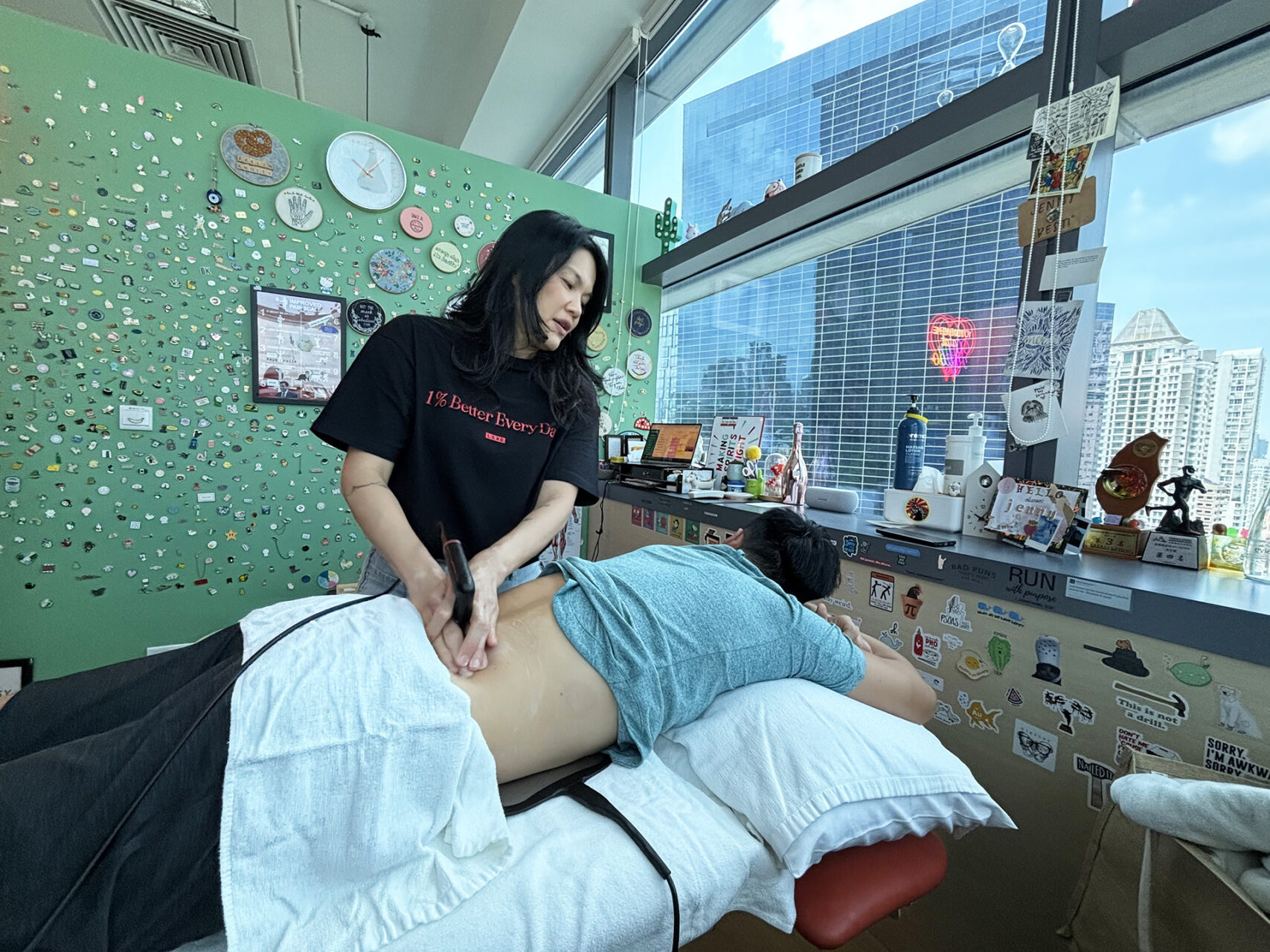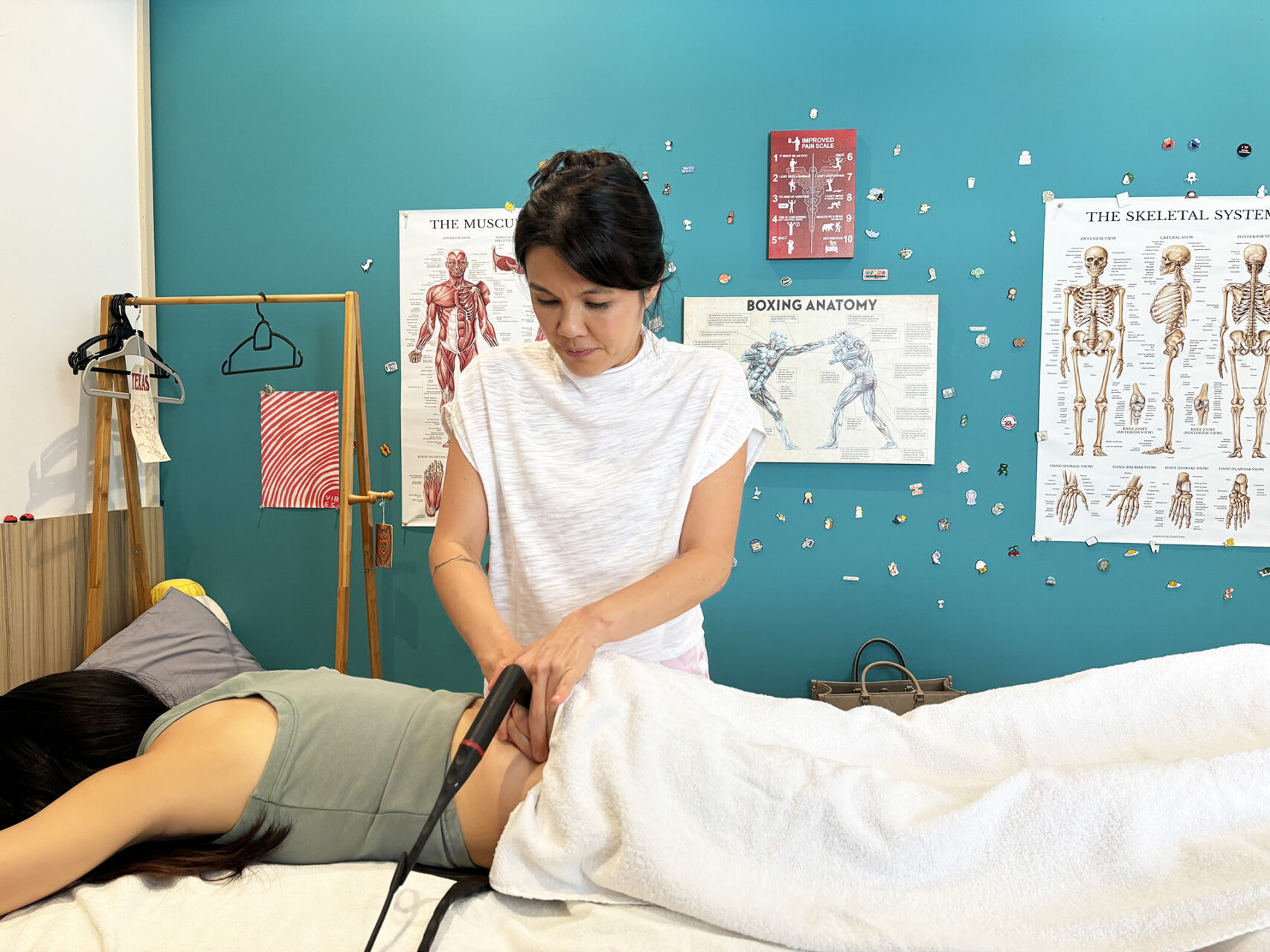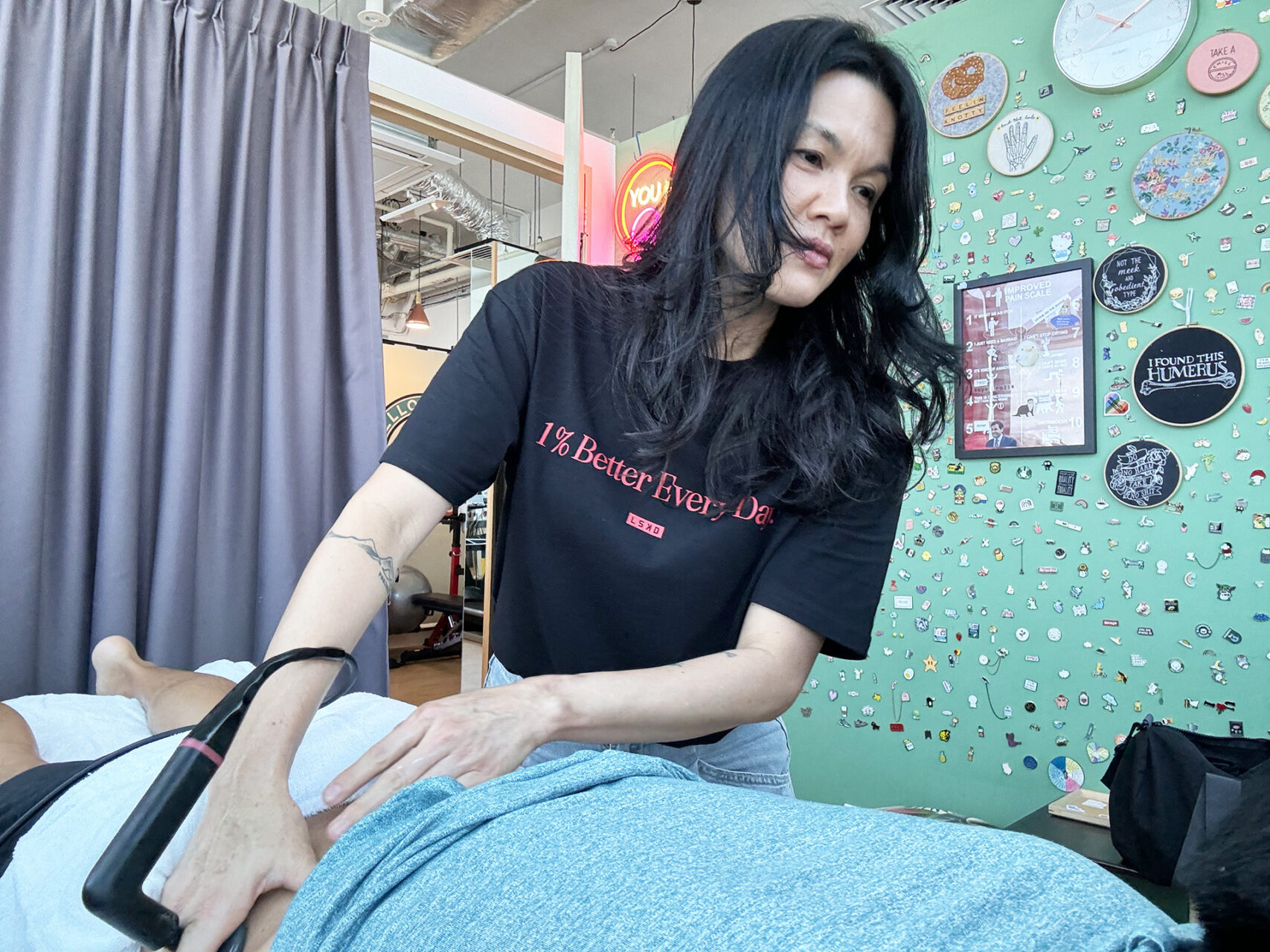Lumbar spondylosis, a common degenerative condition of the lower spine, affects many individuals as they age. Characterised by wear and tear of the intervertebral discs, facet joints and ligaments, lumbar spondylosis can lead to stiffness, back pain and reduced mobility. Although the condition is progressive, early intervention through physiotherapy can alleviate symptoms and significantly improve quality of life.
Is Lumbar Spondylosis Serious?
Lumbar spondylosis can range from mild to severe, with symptoms varying in intensity. Mild lumbar spondylosis often causes intermittent stiffness and discomfort, while advanced stages may lead to nerve compression, resulting in radiating pain or numbness in the legs. Multilevel lumbar spondylosis, which affects multiple levels of the spine, can further exacerbate symptoms. While the condition itself is not life-threatening, it can severely impact daily activities if left untreated. Early lumbar spondylosis management is essential to prevent complications and maintain spinal health.

What Causes Lumbar Spondylosis?
The primary cause of lumbar spondylosis is the natural aging process, leading to spinal structure degeneration. Over time, the discs lose hydration and elasticity while the joints and ligaments undergo changes that can result in stiffness and pain. However, lumbar spondylosis can also be caused by trauma, such as falls, accidents, or repetitive strain from heavy lifting. Factors like poor posture, obesity, and a sedentary lifestyle may increase the risk of developing the condition.
Understanding Lumbar Spondylosis Back Pain
Back pain is one of the most common and debilitating symptoms of lumbar spondylosis. This pain may range from a dull ache to sharp discomfort, often worsening with prolonged sitting, standing, or physical activity. Physiotherapy targets the underlying causes of lumbar spondylosis back pain through strengthening, stretching and pain relief techniques.
Physiotherapy offers lasting relief and better spinal function by addressing biomechanical imbalances and improving spinal alignment.
Can Trauma Cause Lumbar Spondylosis?
Trauma can accelerate the degenerative changes associated with lumbar spondylosis. Injuries from falls, accidents, or high-impact sports may damage the discs, joints and ligaments of the spine, triggering early lumbar spondylosis.
Repeated trauma, such as that experienced by athletes or individuals in physically demanding jobs, increases the likelihood of multilevel lumbar spondylosis. Physiotherapy plays a critical role in managing trauma-induced lumbar spondylosis, helping patients recover strength and mobility while minimizing the risk of further damage.

How to Manage Lumbar Spondylosis
Physiotherapy is one of the most effective ways to manage lumbar spondylosis, offering targeted treatments to reduce pain, improve mobility, and strengthen the spine. A tailored physiotherapy program often includes:
- Lumbar Spondylosis Exercises: Specific exercises focus on strengthening the core and back muscles, improving flexibility and enhancing spinal support. These exercises are crucial for alleviating symptoms and preventing further degeneration.
- Manual Therapy: Techniques like spinal mobilization and soft tissue release help to relieve tension and restore normal joint movement.
- Posture Correction and Ergonomics: Physiotherapists provide guidance on maintaining proper posture and making ergonomic adjustments to reduce strain on the lumbar spine.
- Advanced Modalities: Treatments such as INDIBA® Activ and Shockwave Therapy accelerate tissue repair, reduce inflammation and address chronic pain effectively.
INDIBA® Activ and Shockwave Therapy are advanced, non-invasive treatments that significantly relieve individuals with lumbar spondylosis by addressing pain, inflammation and tissue repair through targeted physiological mechanisms.
INDIBA® Activ for Lumbar Spondylosis
INDIBA® Activ uses radiofrequency energy at a specific frequency (448 kHz) to accelerate cellular repair and improve tissue health. This therapy enhances the body’s natural healing processes and effectively manages the pain and inflammation associated with lumbar spondylosis.
By boosting cellular metabolism, INDIBA Activ stimulates ion exchange across cell membranes, promoting ATP production that facilitates tissue repair and regeneration in damaged intervertebral discs and ligaments. The therapy also increases vasodilation, ensuring improved blood circulation to the affected area. This delivers essential oxygen and nutrients for healing while clearing metabolic waste and inflammatory byproducts.
INDIBA Activ provides immediate and sustained pain relief by activating endorphin release and modulating pain signals at a neurological level. Additionally, it reduces chronic inflammation by normalising tissue temperature and encouraging lymphatic drainage, ensuring comprehensive relief for lumbar spondylosis symptoms.

Shockwave Therapy for Lumbar Spondylosis
Shockwave Therapy employs high-energy acoustic waves to stimulate the body’s natural healing processes, making it an effective solution for managing chronic pain and stiffness in lumbar spondylosis. This therapy promotes collagen synthesis by triggering fibroblast activity, strengthening spinal ligaments and supporting intervertebral discs.
Shockwave Therapy enhances blood flow to the degenerated spinal tissues by encouraging angiogenesis, expediting recovery and reducing discomfort. It also addresses calcifications in the spinal region, breaking down calcium deposits that can limit mobility. Pain modulation is another key benefit, as the therapy desensitizes local nerve endings and increases the production of endogenous opioids, effectively alleviating lumbar pain.
Together, these advanced therapies offer a comprehensive, science-backed approach to managing lumbar spondylosis, improving mobility and enhancing quality of life.
Get Early Intervention to Address Your Pain
With early intervention and a comprehensive physiotherapy plan, symptoms can be managed effectively, and mobility can be restored. Whether you’re dealing with mild lumbar spondylosis, back pain, or trauma-induced spinal changes, the expert team at HelloPhysio provides tailored care to address your unique needs. Contact us today to learn how we can help you regain control of your spinal health and overall well-being.

